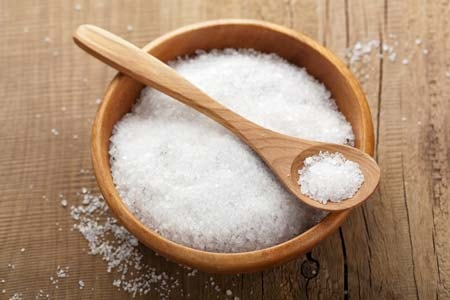Eating too little salt is as harmful to your health as eating too much salt.
Most of us are familiar with the warning that eating too much salt raises blood pressure, which can lead to heart disease, stroke and early death.
However, not many people know that eating too little salt (absorbing too little salt) is also harmful to our health.
 |
According to experts, the sodium component in salt (a salt molecule consists of 1 sodium atom bonded to 1 chlorine atom), with the right amount, is an essential mineral that helps our body maintain good health.
Found primarily in the blood and in fluids outside and inside cells, sodium plays a vital role in normal muscle and nerve function, and is needed to maintain normal fluid balance inside and around cells. When sodium levels in the body become too high or too low, the imbalance can create conditions that promote disease.
The body's source of sodium comes from the food and drinks we consume. And sodium is excreted mainly through sweat and urination.
Our kidneys maintain the right amount of sodium in our bodies by regulating the amount of sodium excreted in our urine. However, when sodium intake and excretion are not balanced, the total amount of sodium in our body is affected. Changes in the amount of sodium in our body directly affect our blood volume (the amount of water in our blood).
So when we eat too little salt, meaning we don't get enough sodium, the blood volume in our body decreases. This leads to a corresponding drop in blood pressure - hypotension or low blood pressure.
When blood volume begins to become low, our pituitary and adrenal glands secrete hormones that cause the kidneys to retain sodium and water in order to increase blood volume. If this condition is not corrected over time, it can lead to kidney problems as well as adrenal fatigue.
Low blood pressure can also cause our heart rate to increase, leading to dizziness and shock.
Low blood sodium levels can also affect the brain, which is highly sensitive to changes in sodium levels. When the brain is affected, we may feel lethargic or confused.
If the situation worsens, the body will experience additional symptoms of muscle spasms. In severe cases, the consequences of sodium deficiency can be stupor, coma and even death.
According to Vietnamnet






